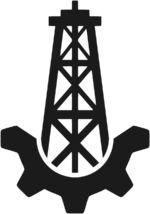National Petroleum Syndicate
This article is incomplete because it is pending further input from participants, or it is a work-in-progress by one author. Please comment on this article's talk page to share your input, comments and questions. Note: To contribute to this article, you may need to seek help from the author(s) of this page. |
 | |
Native name | Nadadula N'Mazut |
|---|---|
| Direct distributist syndicate | |
| Industry | Petroleum extraction, petroleum refining |
| Founded | July 22, 1872 in Batana, Talahara |
| Founders |
|
| Headquarters | , |
Area served | Global |
Key people |
|
($169.47 billion) | |
| Total assets | ($894.07 billion) |
| Members | 743,500 (2024) |
| Website | nps.ta.com |
The National Petroleum Syndicate (Takelat: ⵏⴰⴷⴰⴷⵓⵍⴰ ⵏ'ⵎⴰⵣⵓⵜ; Nadadula N'Mazut), commonly initiallized as NPS (Naduma) is the national Talaharan energy syndicate, primarily operating in crude petroleum extraction and refinement. The NPS is a direct distributist syndicate, with its commercial assets collectively owned by its workforce membership. Initially formed in 1872 to explore oil extraction, the NPS grew rapidly at the turn of the 20th century and is now the largest commercial entity in modern Talahara, accounting for approximately one-tenth of the country's economic product.
The NPS primarily supplies petroleum for energy and petrochemicals in Talahara and Tyreseia. The NPS's market reach also extends to the broader Periclean basin and inland over West Scipia. As Talahara is notably not a member of the AOPN, the NPS frequently competes with Sydalene oil and gas companies in the Periclean basin.
History
Oil exploration in Talahara began in the 1860s as advents gas lighting fueled by kerosene was developed abroad, creating an industrial substitute for whale oil and coal gas/tar. Kerosene and other early petro fuels were far more energy dense than coal gas and whale oil, and the extraction was easier to industrialize than the harvesting processes of the latter. The first oil wells in Talahara were commercially viable by 1869 and the National Petroleum Syndicate was officially founded in 1870 by a group of entrepreneurs who imported foreign refinement and extraction methods to Talahara.
The first Talaharan wells were exploited in the southwest, near the city of Batana in the Ninva Desert. The first oil wells in the region were discovered incidentally by drillers searching for groundwater aquifers sometime shortly after the Talaharan Civil War. These wells were initially treated somewhat as novelties, as techniques for refining the crude oil into efficient products were yet unknown. The Batana-Ninva oil field created a boom in the southern city, which saw its population expand from approximately 800 residents in 1870 to 80,000 in 1882. Today, Batana is still the eighth largest city in the United Communes and much of its growth and economic activity is still attributable to the petrochemical industry and services.